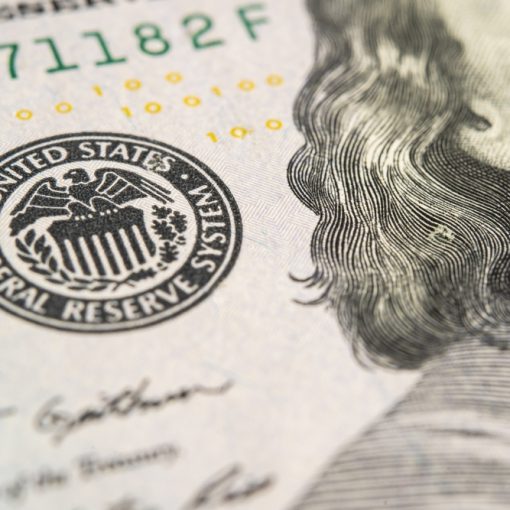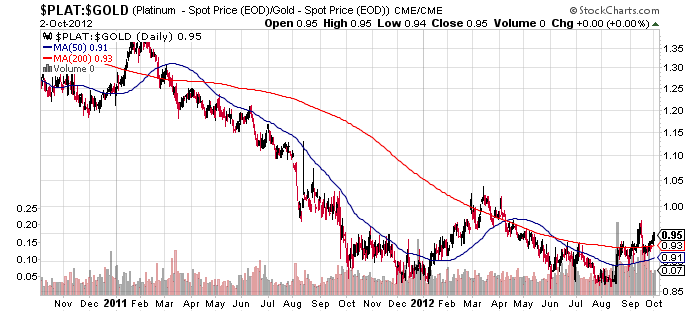By Sandrine Soubeyran, director research and analytics, FTSE Russell
Since the introduction of economic reforms some 40 years ago, China’s economy has transformed into a formidable driver of global growth.
As the country continues to open its equity market to international investors, in my view they will find a market with a broader set of industries. And also—perhaps surprisingly to some—they will see an increase in focus on the green economy.

China’s economy has expanded rapidly over the past several decades, and has now grown to become the second largest in the world.
As our recent research shows, the country owes this growth to decades of policy and economic reforms, as well as the openness of its markets to attract international capital, strong exports, and the substantial urbanization of its society.
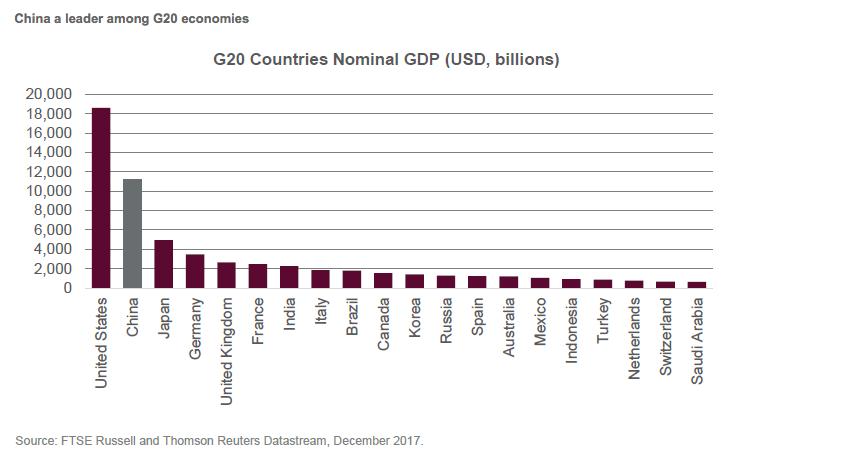
Diversified Economy
Furthermore, Financials largely dominated the FTSE China Intl All Cap Inclusion (no Quota) Index a decade ago, and while Financials still remains the most heavily weighted sector, its prominence has fallen while others have grown.
As a result, today the index is more diversified across a broader section of industries.
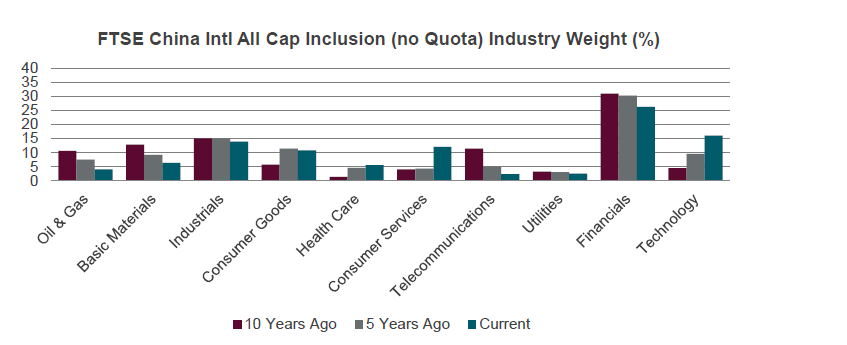
China’s evolving sector landscape is in part being shaped by the global transition to a green economy—in which China has been perhaps an unexpected participant.
High levels of air, water and soil pollution has spurred the Chinese government to heavily invest in environmental initiatives. In 2017, Chinese investments accounted for 45% of the global total.
Green Economy
Within a broad green economy universe[1] of some 3,000 companies, China now represents 12% of the market with both the number of green companies and their green revenues exposure outpacing many other nations.
An example of this can be found in the renewable energy sector, where China has made significant investments. The country is uniquely placed in that it’s become a global market-leader in the production of solar panels.
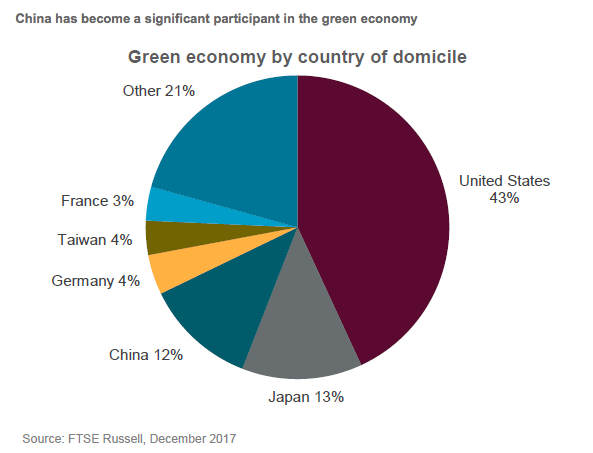
It’s also rapidly taking market share in the manufacture and adoption of electric vehicles, noted as one of the fastest growing markets for these vehicles in Q1 2017.[2]
To limit the country’s waste and reduce costs, the authorities have introduced alternative schemes.
For example, recent projects have included setting capacity limits in regions with high waste rates, launching a nationwide carbon emissions trading market and issuing via the China National Renewable Energy Centre green electricity trading certificates.
Reform Drive
Investors might find China’s efforts to invest in sustainability encouraging, as the green economy has seen considerable growth in recent years.
And regulatory reforms continue to open doors in China’s markets, providing opportunities to international investors as they look to diversify their exposure to a market where the majority have historically had no access.
FTSE Russell continues to support these investment choices with years of experience in the mainland China market. As the first international index provider of mainland Chinese benchmarks, we’ve developed an index product suite that demonstrates the breadth and depth of this important market.
Further Reading
[1] Source: EV-volumes.com as of Q1 2017
[2] Source: FTSE Russell paper, Investing in the global green economy: Busting common myths on ftserussell.com
Photo Credit: Alfred Weidinger via Flickr Creative Commons
This article first appeared on the FTSE Russell blog on October 19, 2018.
© 2018 London Stock Exchange Group plc (LSEG Group). All information is provided for information purposes only. All information and data contained in this publication is obtained by the LSE Group, from sources believed by it to be accurate and reliable. Any representation of historical data accessible through FTSE Russell Indexes is provided for information purposes only and is not a reliable indicator of future performance. No member of the LSE Group nor their respective directors, officers, employees, partners or licensors provide investment advice and nothing contained in this document or accessible through FTSE Russell Indexes, including statistical data and industry reports, should be taken as constituting financial or investment advice or a financial promotion.
Certain of the information contained in this article is based upon forward-looking statements, information and opinions, including descriptions of anticipated market changes and expectations of future activity. The author and its employer believe that such statements, information, and opinions are based upon reasonable estimates and assumptions. However, forward-looking statements, information and opinions are inherently uncertain and actual events or results may differ materially from those reflected in the forward-looking statements. Therefore, undue reliance should not be placed on such forward-looking statements, information and opinions. Please note that at this time, you cannot invest in any portfolios constructed based on the referenced China-related indexes through Interactive Brokers Asset Management.

